NI assembly election: Gender balancing and the thrill of the fight
- Published
Balancing the genders
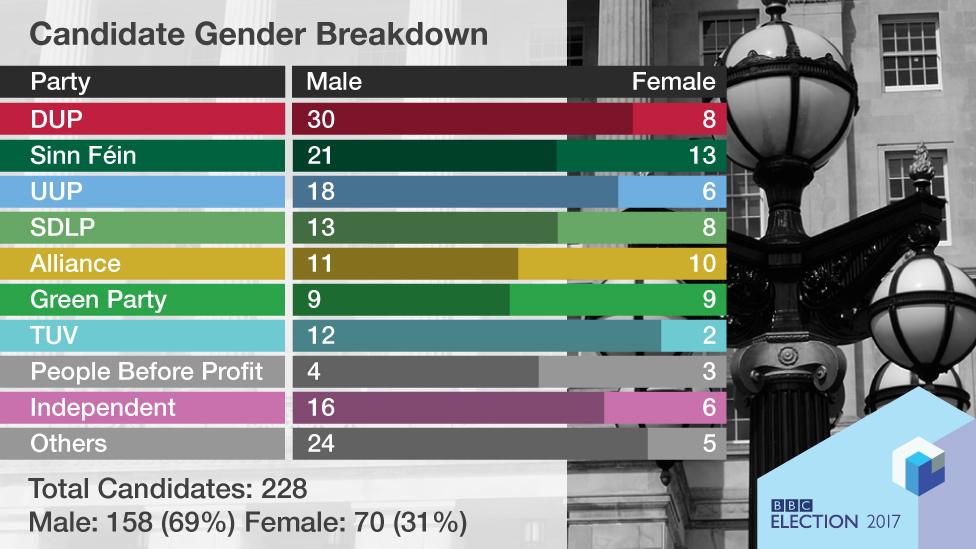
One of the standout figures from last year's Northern Ireland Assembly election result was that the number of women MLAs increased by 50%.
Women made up 28% of the assembly, compared with 19% in 2011.
And while that was a significant mark of progress, Stormont still lagged well behind the Scottish Parliament and the Welsh Assembly for female representation.
The 70 women running this time make up 31% of the overall number of candidates, a 4% increase on last year's figure.
The Green Party is unique in running an equal number of men and women, a repeat of the numbers it fielded last year.
But leader Steven Agnew admitted that almost came about by accident - the party had initially set a target to field six women.
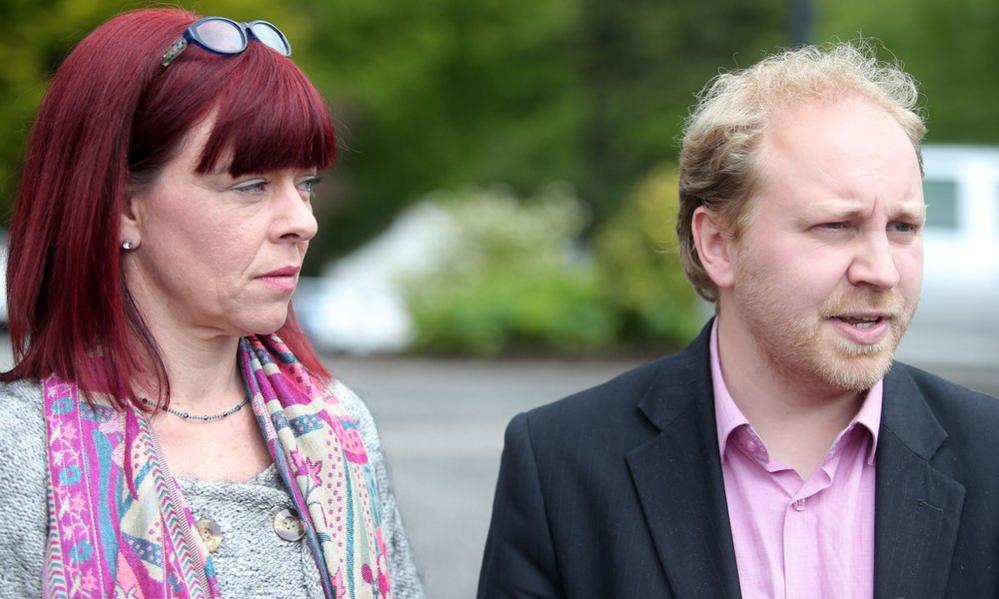
Claire Bailey and Steven Agnew were elected for the Green Party in last year's assembly poll
"We took a decision to increase the number of female candidates and set a one-third quota," he said.
"But once we started to ask women to come forward we realised we had a lot of talented women in our party."
Mr Agnew said it is a positive move that other parties have increased their percentage, but he believes they are following in the Green Party's wake.
"When we went round for candidates this time, at one point we actually had 10 female and eight male, but unfortunately one person had to pull out because of work issues, so it ended up being balanced again.
"We find with female candidates they're again more likely to come forward [when asked], whereas men often are maybe more inclined to put themselves forward without being asked."

Deadline day to register for postal and proxy votes
Heading away over election day? Perhaps there's another reason you'll not be able to cast your vote in person?
Don't worry - you can still have your say in who gets a seat at Stormont, but Friday is your last chance to register.
If you can't pop down to the polling station on 2 March, you can apply to vote by post or by proxy.
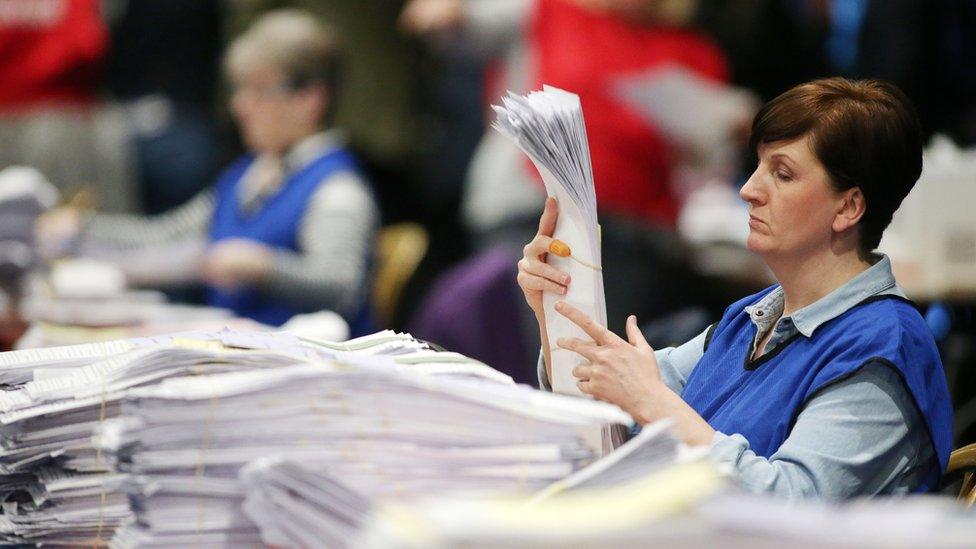
A postal vote can be sent out to any address within the UK and must be returned before 22:00 GMT on polling day.
Proxy votes allow you to get someone to fill in your ballot paper for you, if, for example, you fall ill or happen to be abroad.
The deadline for applications for postal or proxy votes is at 17:00 GMT - visit the Electoral Office for Northern Ireland website, external to find out more.

Thrill of the fight
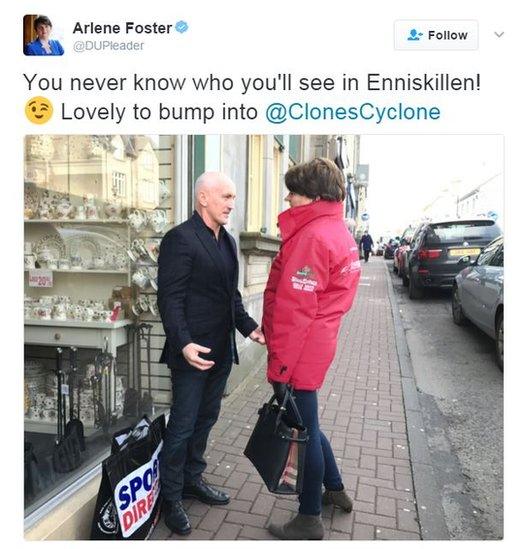
She said it would be a "brutal" election battle, and it looks like Arlene Foster has been looking for a few tips for the fight.
Opponents of the Democratic Unionist Party leader have been trying to land a few knockout blows.
But after going toe-to-toe with former world boxing champion Barry McGuigan she could be more confident of rising up to the challenge of her rivals.
Plenty of rounds left in the brawl of the election campaign, so will the gloves come off before the bell rings for polling day?

On the road again
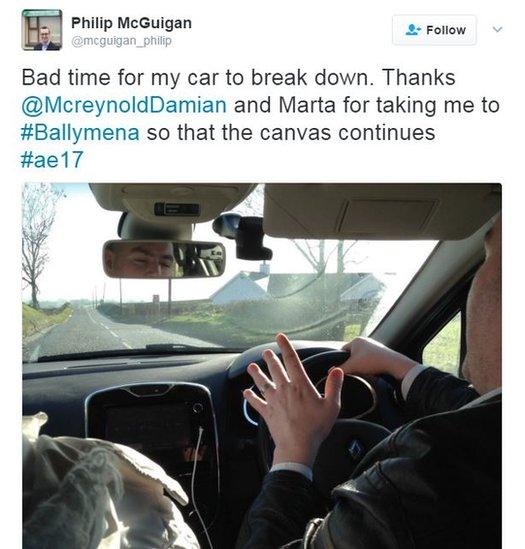
Election hopefuls clock up plenty of miles when they're driving around on the campaign trail.
And it appears that those bumpy country roads in North Antrim have put the brakes on Philip McGuigan's canvassing.
But he didn't let a breakdown put his lights out or puncture his enthusiasm.
With a wheely good turn of luck, the Sinn Féin man received a little help and he was soon back on the road.

Know how to cast your vote?
Election systems can be hard to get your head around and knowing whether to put an X in a box or a 1, 2, 3 can be confusing.
Assembly, council and European elections in Northern Ireland use a system called Single Transferable Vote (STV), where voters rank candidates on their ballot papers in order of preference.
How does the STV system work to elect MLAs in Northern Ireland?
STV gives smaller parties a better chance of getting candidates elected, as they may benefit from transfers from larger parties.
But how do those preferences make up who is elected or eliminated?
Using an emoji parliament, we explain in the video above how the STV system works.

BBC News NI's Campaign Catch-up will keep you across the Northern Ireland Assembly election trail with a daily dose of the main stories, the minor ones and the lighter moments in the run up to polling day on Thursday 2 March.
Hear more on BBC Radio Ulster's Good Morning Ulster and BBC Radio Foyle's The Breakfast Show at 07:40 GMT, and on BBC Radio Ulster's Evening Extra at 17:40 GMT each weekday.
- Published9 February 2017
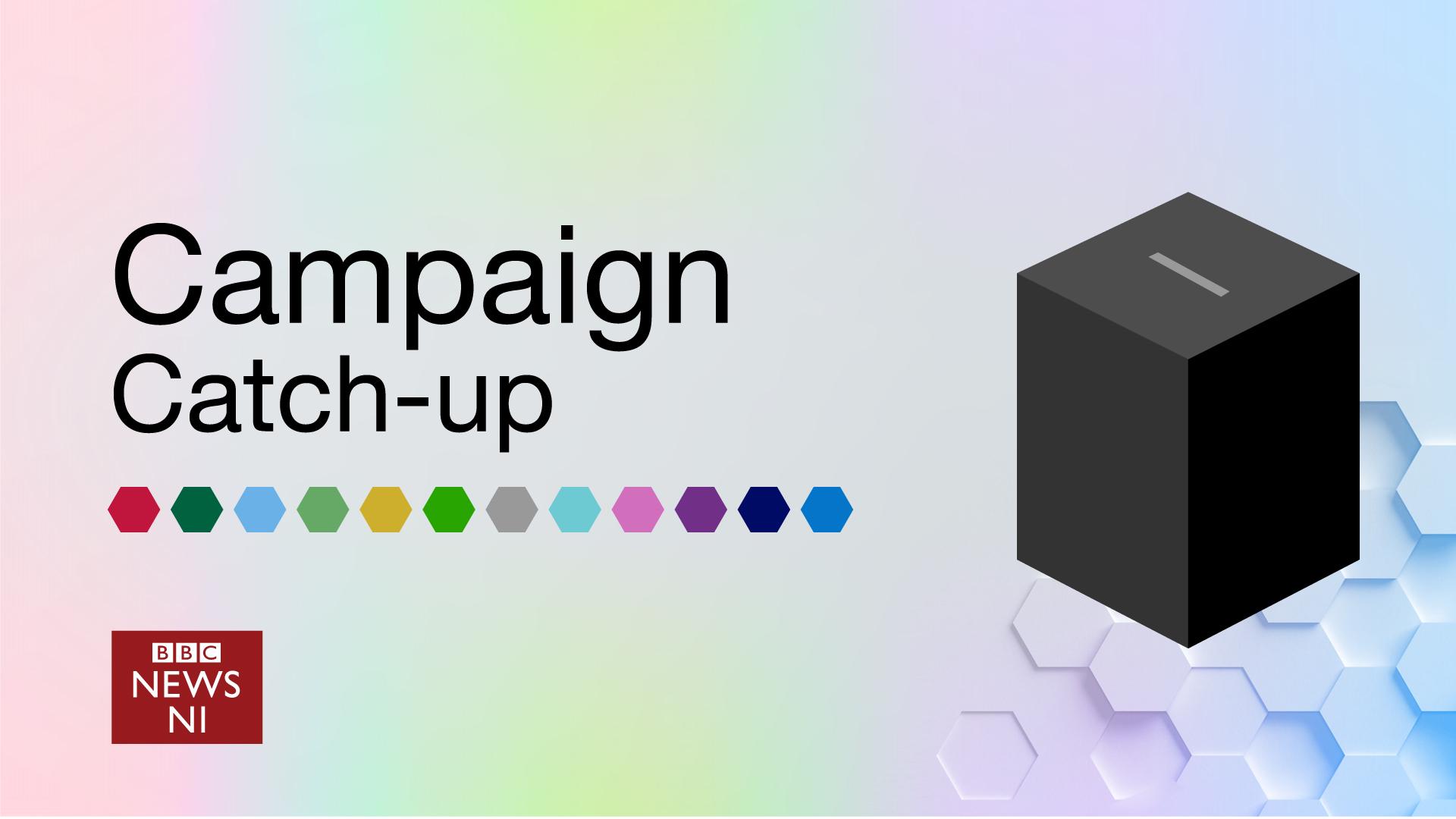
- Published7 February 2017

- Published6 February 2017
